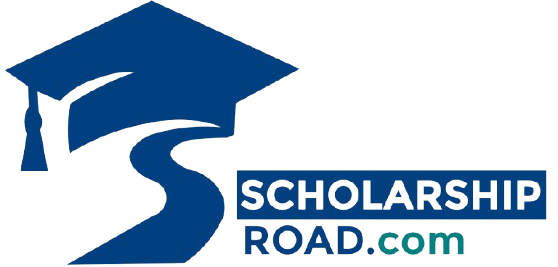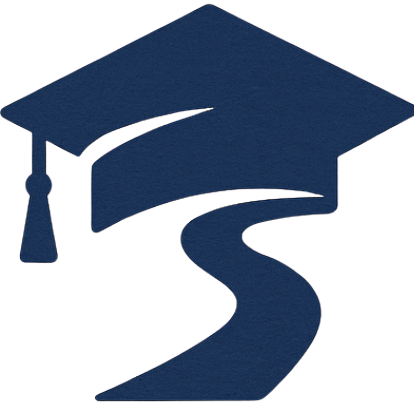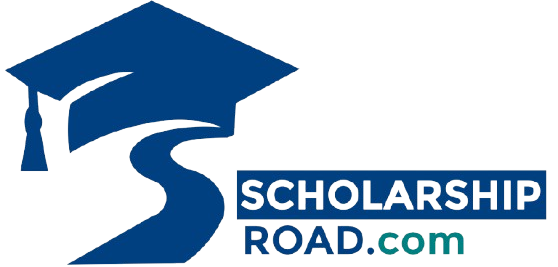Do you have a dream to pursue science, engineering, or innovation but lack the financial resources to do so? Then you are not the only Chilean student to dream it. The expenses of research, access to laboratories, global research, or the start of your first technology project will need funding. The positive? Such support is there. And this is going to help you locate it and know how to apply.
The country of Chile is investing heavily in science, research, and technology. The scholarships, research grants, and the startup programs are also opening actual doors to the young minds with big ideas in the country. Even if you are still in university or just completing your master’s, or already have your own scientific product to prototype, chances are, there will be a scholarship or funding program with your name on it.
This paper is not on glitzy promises. It is about providing you with a bright, truthful, and practical guide to seeking the actual and genuine Chilean science and innovation scholarships—as well as making a start of something bigger.
The Reasons Chile Is All-In With Science and Innovation
Chile is not sitting back and waiting to have its problems solved by other countries. The country understands that science and innovation are the way forward in realizing a better future—whether it comes to water scarcity and climate adaptation, mining safety, clean energy, and health research, among others.
And this is why over the last ten years, Chile has managed to construct one of the most progressive national strategies in Latin America silently. This includes:
-
Allocation of increased research funds by the Ministry of Science
-
One of the most renowned state-supported accelerators in the world: Start-Up Chile
-
The science and development agency in the country is referred to as ANID (Agencia Nacional de Investigación y Desarrollo)
-
A system of public-private alliances which compensate those who have scientific ideas and facilitate university-based research
It is not only the experienced scientists or firms. It is targeted to students, young researchers, and young innovators. Here, it is yours.
Who Is This Guide Aimed At?
This guide will be of interest to all people who are interested in science and innovation in Chile. Namely, it is aimed to serve:
-
Undergraduate science degree-seeking students looking for scholarships
-
Students in master or doctorate programs who need to have research funded
-
New graduates who have developed innovative health/environment/AI/engineering projects
-
Students who desire to undertake their studies in a foreign country in the field of science/tech
-
The restless young professionals having a good project idea but no funding
It will not make any difference whether you are located in Santiago, Antofagasta, Valparaíso, or in some country overseas. It is all about your intentions to create something tangible—and addressing issues with the help of science.
Chilean Types of Science and Innovation Scholarships
And there is no single Chilean Science Scholarship. Rather, it has a combination of programmes that promote various directions: university degrees and researches, as well as technology-driven start-ups. Time to deconstruct them.
1. Undergraduate Science Scholarships
When you are new to the process, there are a number of programs that will assist you in financing your degree in either a science or engineering discipline at the baccalaureate level.
These include:
-
Ministry of Education scholarships to top students who gain admission to universities or accredited private higher-education institutions
-
Rural or underserved area student scholarships, depending on region or municipality
-
Merit-based awards at the level of the university and in popular courses such as data science, energy engineering, and biotechnology
In some universities, it goes so far as to provide undergraduates with research stipends when they desire to help in the lab or wish to publish preliminary work.
Although the stipend or scholarship at this level may not be very large, it may help cut down your tuition fee or provide you with funds to sustain your living so that you are able to remain focused towards the achievement of your objective.
2. Postgraduate Scholarships (Master/PhD)
This is where it gets wide open.
The Agencia Nacional de Investigación y Desarrollo (ANID) administers some funding schemes, whose most popular scheme is the Becas Chile programme. These scholarships finance the studies in master or doctoral degrees in Chile or outside.
Some of the key activities include:
-
Beca Magíster Nacional: It will cover full tuition fees, monthly stipend, health insurance, and travel within Chile
-
Beca Doctorado Nacional: For doctoral degrees in Chile, with full subsidy
-
Becas de Doctorado en el Extranjero: For students to study abroad in foreign PhD programs
-
Support of the Insertion of Young Investigators: Assists postdocs to join research careers
In order to qualify, you usually require:
-
A research proposal or a plan
-
Admission (or pre-admission) to an applicant program
-
Professional academic record
-
References (letters of recommendation) and personal statement
Note: Overseas programs usually have priorities given to underdeveloped areas in Chile or to those areas with specific national objectives.
Chile Does Not Support Academia Only
Not only do students in labs in Chile have science funding. Working on a commercially oriented startup, a useful innovation, or a product related to a research work and having a commercial or a social purpose, you may be entitled to another category of support.
3. Grants for Startup and Innovation
The best known one of them is Start-Up Chile, which provides:
-
Equity-free funding
-
Office space in Santiago or hubs
-
Opportunity to be surrounded by mentors internationally
-
Foreign founder or returnee visa assistance
There are a number of tracks in Start-Up Chile:
-
Build (previously Seed): For the early stage of tech projects
-
Ignite: For fast-growing startups needing high growth through science
-
Huella: To solve social or environmental problems
Over the past few years, researchers in such areas as biotech, clean energy, machine learning, and agriculture have used this platform to transition product—i.e., to take their research off the printed page and into the marketplace.
You may be eligible—even as a student or a recent graduate—if your project is based on scientific discoveries or tries to solve a problem by researching it.
Scholarship to Study Abroad (Science & Innovation)
The other major pillar of the Chilean scholarship system is international mobility. This supports students to attend the best world programs, after which they come back to apply this knowledge back home.
Becas Chile Internacionales Fund
This program supports:
-
Master’s and doctorate courses in countries such as the USA, Germany, UK, Australia, Canada, France, and Spain
-
Tuition, monthly living allowance, health insurance, and round trip ticket
-
Word preparations in cases they are required
It is highly recommended that students studying science and technology degrees in a foreign country should apply—especially in areas like:
-
Clean energy and climatology
-
Molecular biology and biotechnology
-
Cybersecurity and information technology
-
Water management and agriculture
There are scholarships where students are expected to return to Chile after the course and serve in the government or non-government sector within a number of years. This clause is part of the vision of building national capacity and long-term value for the country.
Special Women, Indigenous Students, and Underrepresented Support
Science comes out on top when all people are welcomed to the party. Chile understands that and extends more funding sources to assist traditionally marginalized people.
Programs include:
-
STEM women scholarships: to attract more women into physics, engineering, and technology
-
Funding of Indigenous students in land, environment, and health-related research programs
-
Divisional funding for students in rural areas or from low-income families
-
Support from NGOs such as Fundación Luksic, Fundación Mustakis, and others
This may also include mentorship, workshops, or even travel grants in addition to regular academic support.
Application of Chilean Science and Innovation Scholarships
In Part 1, we answered the question “What is available?”—covering funding for undergraduate studies, research scholarships, innovation grants, foreign study opportunities, and inclusion programs.
So how do we get practical?
-
What is the method of application?
-
What are you in need of?
-
What do you do to stand out with your application?
Applying anywhere through ANID, CORFO, a university, or even through an international partner might feel confusing. However, the right information, planning, and preparation can ensure that you establish a competitive application that gives you a fighting chance.
Where to Apply
The location of application details is as shown in the picture below.
The official scholarship sites should be the beginning of your search.
The key websites to be bookmarked are the following:
| Platform | Purpose |
|---|---|
| www.anid.cl | National research scholarships (Master’s, PhD, postdoc) |
| www.becaschile.cl | International programs and Becas Chile details |
| www.corfo.cl | Startup and innovation-focused grants |
| www.startupchile.org | Tech entrepreneurship with science backing |
| University portals | Local merit and research-based scholarships |
How to Prepare for Chilean Science and Innovation Scholarships
It is a good habit to visit the official scholarship sites once a month. The dates are different every year, and new calls for proposals appear regularly. Staying up to date is key.
The Kind of Preparation You Need Before Applying
The documents can vary depending on the program, but these are the common fundamental requirements for the majority of Chilean scholarships in sciences and innovation:
1. Research Proposal or Innovation Proposal
This is the part that a lot of applicants fail. You have to prove your idea is a good one, and you have to describe it in such a way that other people can see why it is good and how it links to something bigger.
What to Add:
-
An inarguable problem description
-
Your suggested concept or topic of research
-
Roadmap or methodology
-
The national benefit of Chile: Why it is important
-
The desired results or practical influence
Note:
-
For startup grants: Emphasize validation, usability, and business potential
-
For academic grants: Focus more on research methods and relevant literature
2. Curriculum Vitae (CV)
Have a brief CV that is specific and targeted. Include:
-
Education
-
Academic or research experience relevant to your field
-
Labs, publications, and projects
-
Internships, presentations, or conferences
-
Skills: lab equipment, programming, communication, languages
Tip: Do not overcharge it. Write in point form and use action verbs.
3. Letters of Recommendation
Most programs require 1–2 letters of recommendation, ideally from:
-
Professors you’ve taken a course with or done research under
-
Lab directors or research collaborators
-
Innovation project mentors or incubators
Make sure the letters speak directly to your strengths within the scholarship’s focus area. Avoid vague praise—be specific.
4. Acceptance or Enrollment Evidence
-
For scholarships in Chile: A letter signed by your current university or department
-
For international scholarships: A pre-admission letter or conditional acceptance from the foreign institution (required for Becas Chile)
5. Language Proficiency Tests (If Studying Abroad)
Depending on the country you are applying to:
-
English: TOEFL or IELTS
-
French: DELF/DALF
-
German: TestDaF or Goethe-Zertifikat
Note: Some scholarships cover language test preparation courses.
Tips on a Good Application
Local Impact
Scholarship committees give special attention to projects that address:
-
The Chilean Dilemma
-
Economic development or environmental protection
-
Services to underserved or rural communities
-
Alignment with national growth plans: energy, water, AI, education
Your proposal should show how your work, even abroad, will benefit Chile when you return home. The national value of your project is just as important as your academic goals.
Wait Not to Be Perfect
Quite a number of students believe they are not ready and are too late when they apply. However, scholarship programs are not seeking perfection. Show progress, meaning, and a well-thought-out plan. That is even more important than perfect credentials.
Look to Others in Time
-
Get in touch with the scholarship office of your university
-
Enroll in forums or WhatsApp groups where former applicants give advice
-
Find the contact details of past laureates on LinkedIn and reach out to them
The majority will assist you in case you politely request them.
Some Tips to Avoid
These common faults can lead to rejection—even with an otherwise excellent application:
-
Failure to make the deadline
-
Incomplete documents
-
Poor or unclear project proposals
-
Recommendation letters which are not value-adding
-
Inability to describe the value of your work to Chile
-
Using generic templates for motivation letters
-
Believing you are too young, inexperienced, or not “techie” enough
You don’t have to be right—you must be definite, determined, and ready.
True Student Success Story
Marcela – Chilean Beca PhD in Germany (Bioengineering)
Marcela began her career as a small research assistant during her undergraduate studies at Universidad de Concepción. She advanced with an application to a master’s program in tissue engineering in Spain, and subsequently a doctorate in Germany. Her proposal was good, and with her two recommendation letters, she received a Beca de Doctorado en el Extranjero.
Today, her work is part of a shared Chile–EU research project in regenerative medicine. Her advice?
“I was not the best in my class. But I did know what I wanted to do and I was certain that I could use it to benefit the public hospitals in Chile. It was that connection that made the difference.”
Now That You Have Got the Scholarship—What Next?
Receiving the scholarship is a great move. But what happens next?
When You Are in School or Running Your Own Small Business
-
Keep in touch with your scholarship agency (they may require reports or check-ins)
-
Network! Lifelong collaborations often begin in these programs
-
Utilize university labs, mentorship opportunities, and international events
In Case of Studying Abroad
Most scholarships will require you to commit to returning to Chile for 2–4 years. This can take the form of:
-
Teaching or research jobs
-
Business startup in Chile
-
Employment in the public or tech sector
This is part of the agreement—and it’s an opportunity to implement what you’ve learned at home.
| Resource | Description |
|---|---|
| www.anid.cl | National research grants and scholarships |
| www.corfo.cl | Innovation and entrepreneurship grants |
| www.startupchile.org | Startup acceleration with funding and mentoring |
| www.becaschile.cl | Main site for international study scholarships |
| Fundación Luksic | Support for inclusion and education programs |
| Connect with past scholarship recipients for advice |
My Opinion
Probably you are already thinking bigger and after reading this. These scholarships are meant to do that. They are there since Chile is not afraid of students, researchers, and innovators like you.
And do not cut yourself out of it when it is not even attempted.
You should not always need to have everything figured. You do not have to be an angel. All you have to do is be ready to turn up, to apply, and to explain what you are tying to create, and why it is significant.
Science is the ability to ask the correct questions. Innovation means the resolution of genuine problems. Here is where you can do both perhaps with the help you need to achieve.








